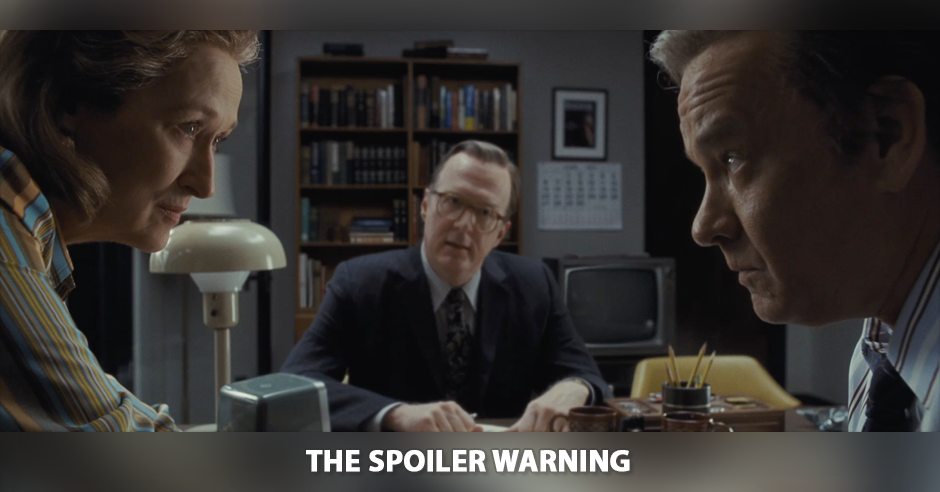If 2017 and Trump have taught us anything, it’s that good journalism—free from censorship and cronyism—is essential. But 2018 and Michael Wolff necessitate a few more modifiers. Good journalism is also patient. It’s sturdy. It’s unshowy, to the ire of shareholders everywhere. It doesn’t rely on knee-jerk reactions, doesn’t throw red meat to a hungry public without thoughtful preparation. It wields its power responsibly. It edifies. It delves into the nitty gritty semantics behind the obvious spectacle. It would rather say nothing than say something untrue. It’s the opposite of our president. It’s thoughtfully, wonderfully, anachronistically boring.
In the best films on the subject (All The President’s Men, Spotlight (full review) ), there’s a tonal symmetry at play: they extol the virtues of deliberation, craftsmanship, and humility by being themselves deliberate, intricate, and unshowy. They build suspense in the way Woodward and Bernstein might build a story: a two-steps-forward-one-step-back, nose-to-the-grindstone plodding which refuses to overstate its case. They understand that truth speaks louder than melodrama; that Marty Baron calmly urging “don’t publish, wait” instills more urgency than any sprint to the printers.
So while The Post may be 2017’s love letter to good journalism, I’m not entirely sure it knows what it means. With Bridge of Spies (full review) I criticized Spielberg for effectively missing the point; for trying to squeeze a thought-provoking mood piece into a sweeping, moralistic hero’s journey. Substituting only a handful of words, the exact same review could have been written about The Post—and, much like the above films’ virtues, there’s a certain tonal symmetry to its flaws. In the telling, Spielberg continues to spell subtle in all caps: enormous Oscar-y performances, John Williams’ grand orchestral swell, Meryl Streep gliding down the steps of the Supreme Court while a wall of admiring women beam. Characters shout “THIS IS RELEVANT TO 2017” to no one in particular, holding our hands through even the tiniest of inferences (see: the Watergate epilogue.) And while the story he tells has plenty to recommend it (the importance of taking risks, the boldness of Katharine Graham in the face of patriarchal condescension, the last death rattle of smoke-filled, boys’ club journalism), it’s hardly a model of journalistic restraint. Slow, responsible sourcing is traded for a frantic ticking clock; Shreiber’s “don’t publish, wait” replaced with Hanks’ “the American People lose unless you publish tonight”; the vast majority of messy implications simply swept under the rug. Didn’t this ticking clock have at least as much to do with scooping the competition as it did with Saving America? Doesn’t the leaker also have his own analogs in 2018, ones society didn’t unanimously support? It’s a story worthy of nuance; of an actual, challenging point of view.
Despite its lack of nuance, I liked The Post just fine. Spielberg, for all his flaws, knows how to craft dazzling dramatic arcs and characters an audience wants to cheer for. He knows how to make a movie feel like an actual movie, like an event worth showing up for. But beyond the dazzle and the talented cast, it’s the scenes of people just doing their jobs—combing through a floor full of scattered pages, putting thoughts to words to metal to ink to paper to hands to trucks to readers across the country—where the film really shines. I wish there had been more of those moments, and less of a moralistic point loudly (but unconvincingly) made. Chris, Carson and I review it in this week’s episode.
